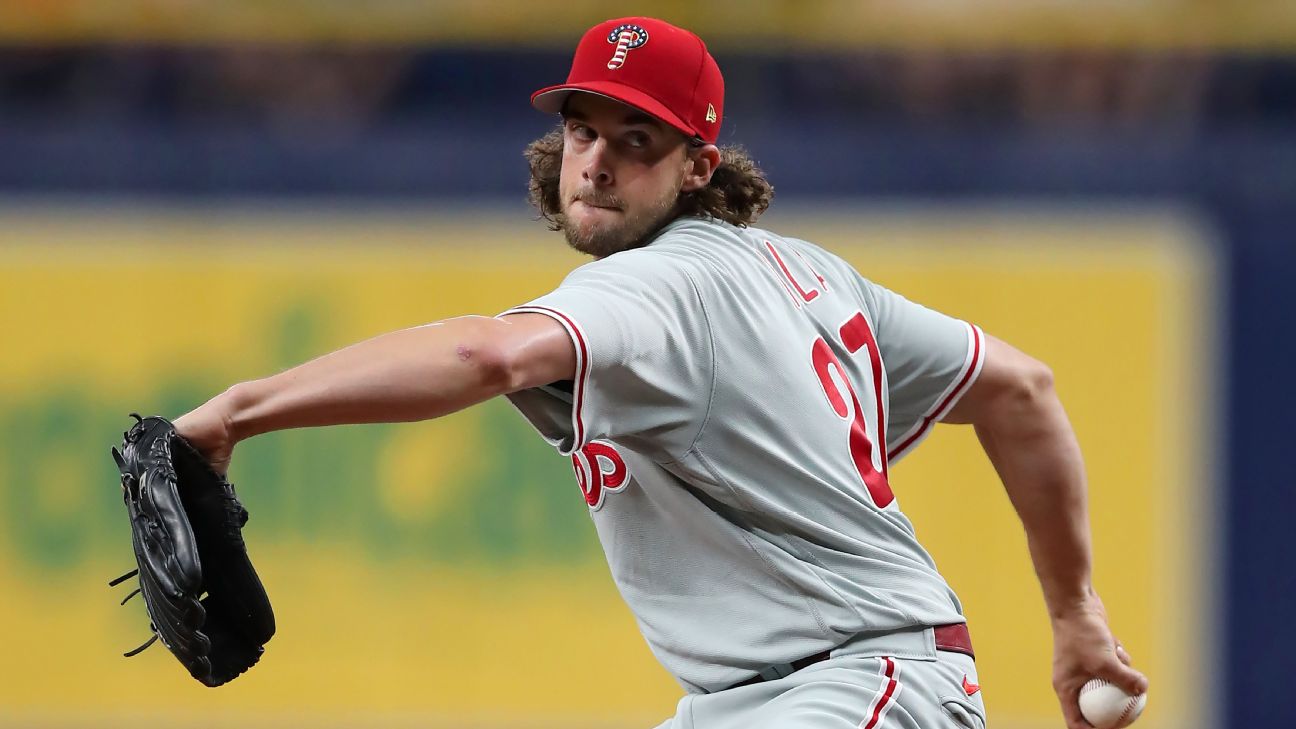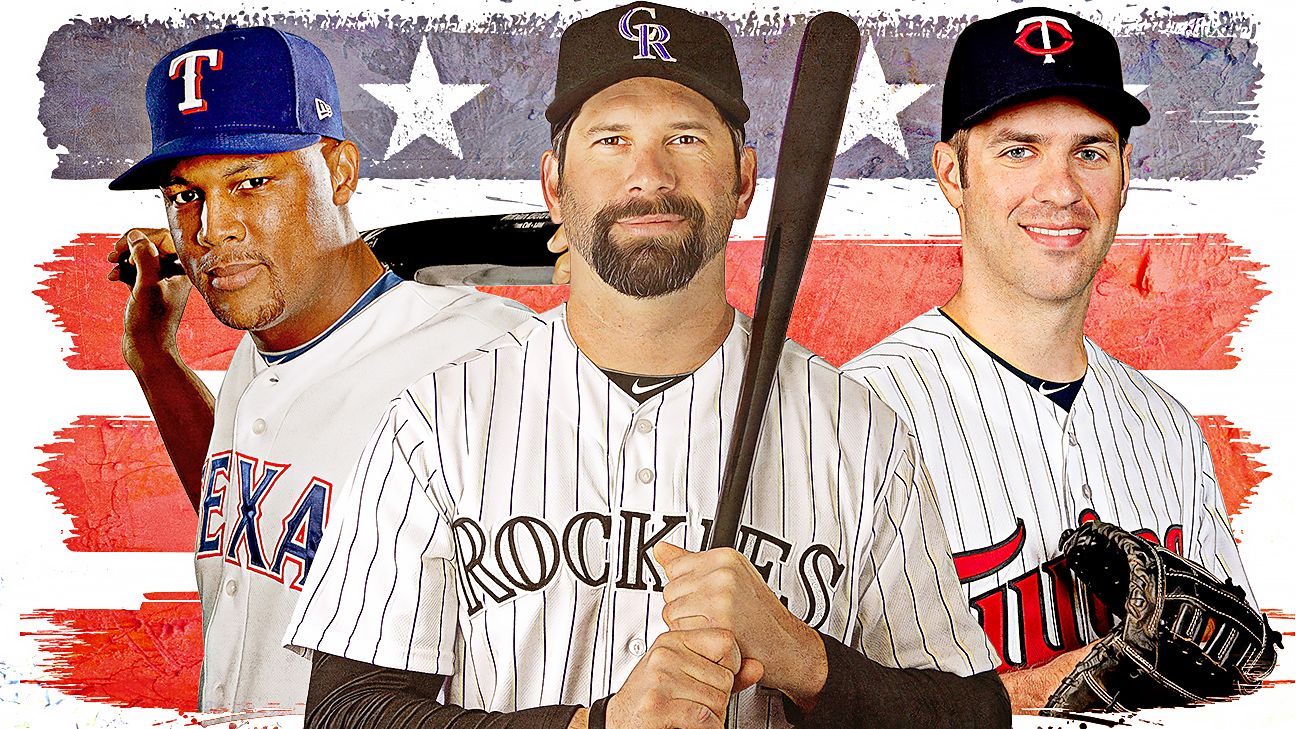
The 2024 Baseball Writers’ Association of America vote is in — and Adrian Beltre, Joe Mauer and Todd Helton are the newest members of the Baseball Hall of Fame. Billy Wagner fell just five votes short of the 75% threshold for enshrinement. The three new Hall of Famers will join Jim Leyland, who was elected in December by the contemporary baseball era committee, in Cooperstown in July.
ESPN MLB experts Buster Olney, Bradford Doolittle, Alden Gonzalez and Jesse Rogers break down what the 2024 vote means, and look ahead to what the future holds for this year’s candidates — and those joining the ballot in 2025.
Let’s get into it.
Besides the three elected, who is the biggest winner on this year’s ballot?
Doolittle: David Wright got very little support, though, thankfully, he received enough votes to remain on the ballot. I don’t know that he’s a Hall of Famer, but it’s not that hard to build a case for him. If you look at what he did in his first 10 seasons, there are very few players who have been left out of the Hall who produced what he did (at least once you cross off active players, those still on the ballot and those left out for nonplaying reasons). We’re still not focusing enough on the number of high-quality seasons someone like Wright put up and too much on compilation.
Gonzalez: Rodriguez has made virtually no progress in his three years on the ballot, going from 34.3% to 35.7% to, this year, 34.8%. Manny Ramirez began with 23.8% in 2017 and got up to only 33.2% in 2023, then dropped to 32.5% in 2024. Ramirez is one of the best right-handed hitters of his era; A-Rod is one of the greatest all-around players in the sport’s history. But their ties to PEDs won’t get them even close to the Hall. Barry Bonds and Roger Clemens broke 60% in their final year of eligibility. I don’t see A-Rod or Ramirez even approaching that.
Which one player’s vote total is most surprising to you?
Olney: Beltran’s big spike is our first real indication of how some voters will treat those linked to the Houston Astros’ sign-stealing scandal. If Beltran was nailed with some first-ballot demerits, it wouldn’t be the first time — so was Roberto Alomar because of his spitting incident with umpire John Hirschbeck. Alomar was elected in his second year on the ballot, and Beltran seems to be trending strongly toward election in the next two or three years.
Rogers: Alex Rodriguez. With so much uncertainty about how to handle the steroid era, I’m surprised someone who has failed tests and has suspensions on his record is getting even 34% of the vote. That total hasn’t changed much from what he got last year or the year before, though, so it’s clear about a third of voters are in one category in this debate; two-thirds believe he should not be in the Hall of Fame.
Doolittle: I don’t know that it’s a major surprise, but I thought Chase Utley would do a little better than 28.8% on his first trip through the process. He’s not in a bad spot, though, and I expect his momentum to uptick quickly from here.
Gonzalez: Bobby Abreu polled at 14.8% in his fifth year on the ballot and I continue to be miffed by him not getting much support, especially in an era when we place so much more value on on-base percentage. Abreu did literally everything. He was a great defender with the power to win a Home Run Derby and the speed to accumulate 400 stolen bases, but he was also one of the most skilled, discerning hitters of his time. He batted in the .300s six times, reached 20 homers nine times and drew at least 100 walks in eight consecutive seasons. He was also incredibly durable, playing in at least 151 games 13 times. The counting numbers might not jump off the page, but he deserves a closer look.
Based on this year’s results, who do you think will get in on next year’s ballot?
Olney: The Class of 2025 might turn out to be enormous. Ichiro Suzuki should be a unanimous selection, of course — how could you not vote for him? Wagner, who fell just short this year, Jones and Beltran are within range of election, as well, and CC Sabathia could get the call in his first year on the ballot. Think about this: Sabathia finished his career with 61.8 WAR, which puts him in the same statistical neighborhood as Juan Marichal, Don Drysdale, Dennis Eckersley and Jim Bunning — all HOFers.
Rogers: Wagner has been inching toward enshrinement, and his final year of eligibility, 2025, will help push him over the top after he received 73.8% of the vote this time around. Wagner’s reputation fits with the relievers who have already gone into the Hall. Back in 2016, he was hovering at about 10%, so it has been a long, slow climb. But where you start should have no bearing on your finish. Voters nearly got him over the hump these past two years; 2025 will be his time.
Doolittle: Ichiro is a no-doubter, and I think Jones and Beltran will get over the top. I say Wagner finally gets in after nine misses. A really interesting candidate will be CC Sabathia, whose case might say a lot about the standards we will consider for Hall of Famer starters in the future. I think he’s in, with the only question being whether or not his “first ballot” status hinders him. And if that’s our class, with the U.S., Curacao, Puerto Rico and Japan all represented, Cooperstown will be a fun place to be in July 2025.
Gonzalez: I can see as many as five getting in next year: Ichiro, Sabathia, Wagner, Jones and Beltran. Here’s the thing, though: It has never happened. The BBWAA has never voted in that many. And it voted in four players on only five occasions — 1947, 1955, 2015, 2018 and 2019. Edgar Martinez didn’t get in in 2018; Mike Piazza and Hank Greenberg were snubbed in 2015 and 1955, respectively. Of the aforementioned five players, I see Ichiro and Wagner as certainties, with Sabathia, Jones and Beltran ultimately being close.











